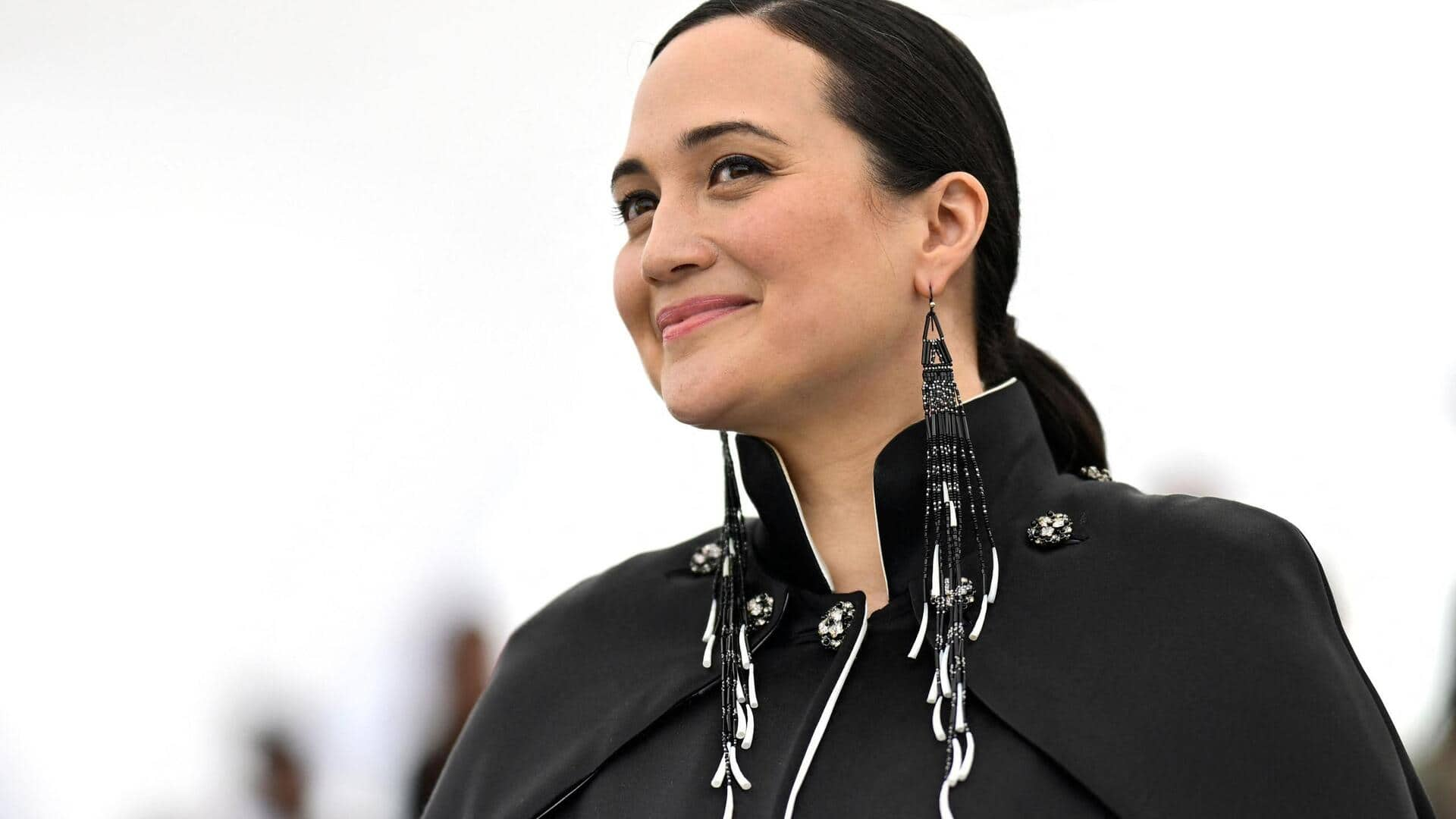
Why does Lily Gladstone use she/they pronouns? Find out
What's the story
Killers of the Flower Moon and Certain Women actor Lily Gladstone has opened up about using she/they pronouns. In an interview with Hollywood portal PEOPLE, Gladstone asserted that these pronouns are a way of "decolonizing gender for [herself]." The actor added how these pronouns connect her to her Blackfeet and Nez Perce roots, which refer to two groups of indigenous tribes in America. Notably, Gladstone spent her formative years on the Blackfeet reservation in Montana.
Details
Childhood experiences and indigenous languages
The actor recounted a childhood memory of her male cousins being misgendered due to their long hair, which left her feeling disheartened. "It [the bullying] happens to a lot of kids, I think, especially Native boys leaving a community where long hair is celebrated [and then] just kind of getting teased for it." "So I remember back then being like, everybody should just be 'they,'" she added.
Insights
Gender implications in indigenous names
Gladstone went on to explain that while Blackfeet doesn't have gendered pronouns; gender is implied through names, but not in a binary way. "So Blackfeet, we don't have gendered pronouns, but our gender is implied in our name. But even that's not binary," said Gladstone, whose grandfather's Blackfeet name meant "Iron Woman." "He was given a woman's name because he kind of carried himself, I guess, the way that women who have that name do."
Women's male names
Women being given men's names historically
She added, "There were lots of women historically and still now who are given men's names. They fulfill more of a man's role in society as far as being providers, warriors, and those sorts of things. So, yeah, my pronoun use is partly a way of decolonizing gender for myself." "When I'm in a group of men, I don't feel like a man. I don't feel [masculine] at all. I feel probably more feminine when I'm around other men."
Awards
How award ceremonies are transforming with changing times
Gladstone also took the opportunity to express her opinions about how award ceremonies are moving toward gender-neutral categories instead of the traditional "actor" and "actress." "I think it's really cool that we're seeing 'performer' and we're seeing everybody brought in together. I do feel that historically having gendered categories has helped from keeping women actors from a lot of erasure because I think historically people just tend to honor male performances more."
Community
Gladstone on her community's role
Gladstone shares tribal affiliations with "Kainai, Amskapi Piikani, and Nimi'ipuu First Nations." In another interview, the actor said, "I lived in the reservations until I was 11 when we moved for lack of economic opportunities." After moving to the suburbs, she realized that "everyone seemed so isolated in their little homes" and has continued to be "in touch with her community." "I am shaped by my community—and I have been supported in my ambition to be an actor and storyteller."
Career
Gladstone's career highlights
Gladstone has appeared in films such as Jimmy P: Psychotherapy of a Plains Indian, Winter in the Blood, The Last Manhunt, and The Unknown Country (also credited as a writer). On television, her projects include Crash Course, Room 104, and Reservation Dogs, among others. She has been nominated for a Golden Globe Award for Best Actress for her role as Mollie Buckhart in Killers of the Flower Moon.